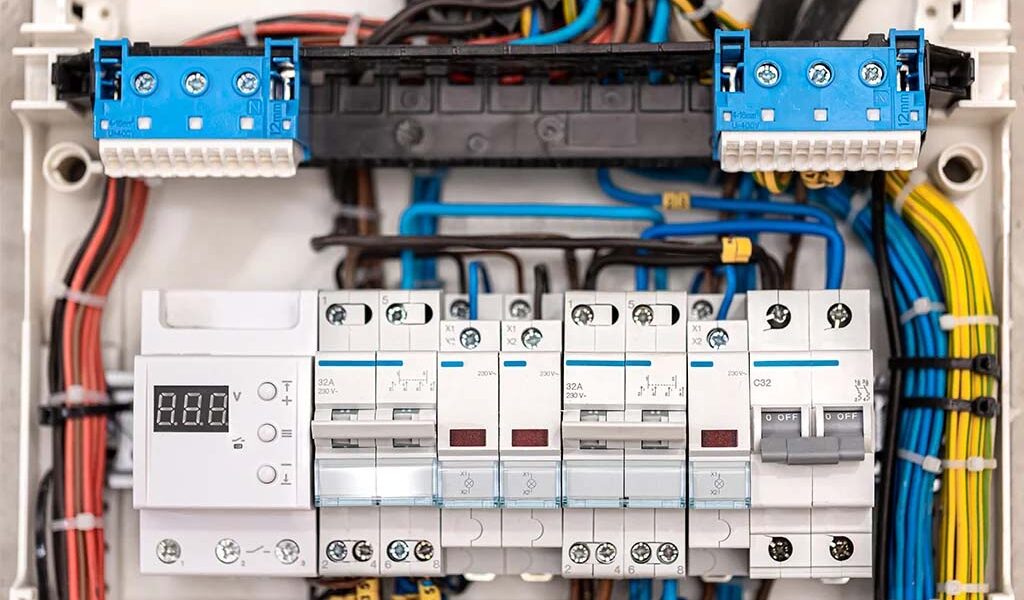

In the ever-evolving world of electrical engineering, ensuring the safety and efficient functioning of electrical systems is paramount. Among the many innovations that have transformed the way we protect our circuits, the miniature circuit breaker (MCB) stands as a pioneering and indispensable component. The MCB, a marvel of modern electrical engineering, is an electromechanical device that has revolutionized the way we safeguard electrical circuits from potential hazards.
In this blog, we will explore what is MCB, its significance, multiple types, diverse applications, and the benefits upon the electrical industry and consumers alike.
What is MCB? Where is MCB used?

MCB, short for Miniature Circuit Breaker, is an electromechanical device designed to protect electrical circuits from overcurrents and short circuits. It acts as an automatic switch that disconnects the circuit whenever it detects an abnormal current flow, preventing electrical fires and damage to appliances and electrical systems. This innovative device combines the advantages of automatic operation and rapid response, making it a reliable and essential component in electrical installations around the globe.
The use of MCB includes a wide range of applications across various settings due to their importance in electrical safety and circuit protection. Its wide array of applications ranges from residential and commercial settings to industrial and specialized environments.
Importance of MCB in the Electrical Industry
MCBs serve as the first line of defense against electrical mishaps and hazardous situations. It holds immense importance in the electrical industry for several reasons, including:
Overcurrent Protection: MCBs act as a safety net against excessive current flow caused by faulty wiring, equipment malfunction, or overloading. They help prevent fires and electrical accidents by interrupting the circuit swiftly.
Quick Response: MCBs have a fast tripping mechanism, reacting instantly to overcurrents and short circuits. This rapid response reduces the risk of damage to sensitive electrical devices.
Reliable Performance: MCBs offer consistent performance over time, ensuring the safety of electrical circuits in various environments.
Can MCB Protect from Lightning? Can It Be Used as a Switch?
While MCBs are effective in protecting against overcurrents and short circuits, they do not provide protection against lightning strikes directly. Lightning protection requires specialized equipment like surge protectors and lightning arresters, which are designed to divert the high voltage of lightning strikes away from sensitive electrical equipment.
As for using MCBs as switches, they are not designed for frequent switching operations. While they can be toggled on and off occasionally, for regular control of electrical circuits, it is best to use dedicated switches to maintain the longevity of the MCB and the overall electrical system.
What are the Benefits of MCB?
MCBs (Miniature Circuit Breakers) offer several significant benefits in electrical systems. A few key benefits of MCB include:

Enhanced Safety: MCBs offer reliable protection against electrical hazards, reducing the risk of fires and accidents.
Easy Reset: Unlike traditional fuses, MCBs can be easily reset after tripping, saving time and effort in identifying and replacing blown fuses.
Cost-Effectiveness: MCBs are more economical in the long run as they do not require frequent replacements like fuses.
Selective Tripping: Modern MCBs come with selective tripping features, allowing only the faulty circuit to be disconnected while keeping the rest of the electrical installation operational.
What are the Different Types of MCB and Their Uses?

MCBs come in various types, each designed to cater to specific applications and current-carrying capacities. The different types of MCB include:
Type B MCB: Suitable for general use in electrical circuits where you have a mix of regular devices like lights, appliances, and electronics.
Type C MCB: Ideal for circuits with moderate inductive loads like motors and transformers.
Type D MCB: Suited for circuits with high inrush currents, typically found in large industrial machinery.
Residual Current Circuit Breaker (RCCB): Provides additional protection against electric shock and is commonly used in residential applications.
RCBO (Residual Current Circuit Breaker with Overcurrent Protection): Offers both short circuit and overload protection along with residual current protection.
The Miniature Circuit Breaker stands as a fundamental element in electrical systems, ensuring safety, protection, and efficient functioning. Its ability to guard against overcurrents and short circuits makes it an invaluable asset in various settings, from residential homes to industrial facilities. With various types catering to different applications, MCBs continue to be the go-to choice for dependable electrical protection, providing peace of mind to consumers and professionals alike.
